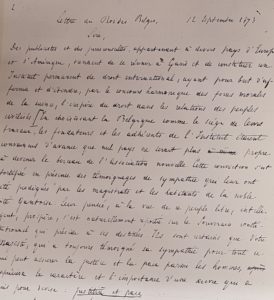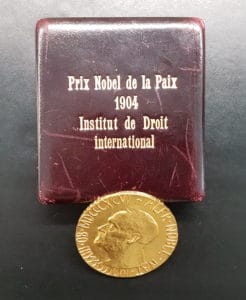About the Institute
The Institute of International Law was founded on 8 September 1873 at the Ghent Town Hall in Belgium. Eleven international lawyers of renown had decided to join together to create an institution independent of any governmental influence which would be able both to contribute to the development of international law and act so that it might be implemented.
In principle, the Institute meets every two years. Between Sessions, Scientific Commissions study themes chosen by the plenary Assembly. The latter receives the work of the Commissions, examines them attentively and if appropriate adopts Resolutions of a normative character.
These Resolutions are then brought to the attention of governmental authorities, international organizations as well as the scientific community. In this way, the Institute seeks to highlight the characteristics of the lex lata in order to promote its respect. Sometimes it makes determinations de lege ferenda in order to contribute to the development of international law.
In 1904 the Institute of International Law was awarded the Nobel Peace Prize, in recognition of its action in favour of arbitration among States, a peaceful means of settling disputes.
The Institute is composed of Honorary Members, Members and Associates. Its administration is effectuated by the Bureau. More information about the functioning of the Institute can be found in its Statutes and Rules. Furthermore, an Auxiliary Foundation has been created to provide financial support to the activities of the Institute.
 |
 |
Extract Address Mancini and Rolin-Jaequemyns to King Léopold IISeptember 1873 |
